Abstract
Thirteen out of fourteen normal mature rabbits injected with sulphanilazo-human-serum-albumin produced antibodies against sulphanilic acid.
In contrast, out of fifteen mature rabbits which had received human serum albumin at birth, none produced detectable antibodies to sulphanilic acid after injections of the sulphanilazo-human-serum-albumin.
Fourteen out of fifteen normal mature rabbits produced antibodies to sulphanilic acid after injections of sulphanilazo-rabbit-serum-albumin.
One out of nine mature rabbits which had been injected neonatally with sulphanilic acid produced antibodies against the hapten when immunized with the sulphanilazo-human-serum-albumin.
The implications of these results are discussed in relation to some current views on antibody formation.
Full text
PDF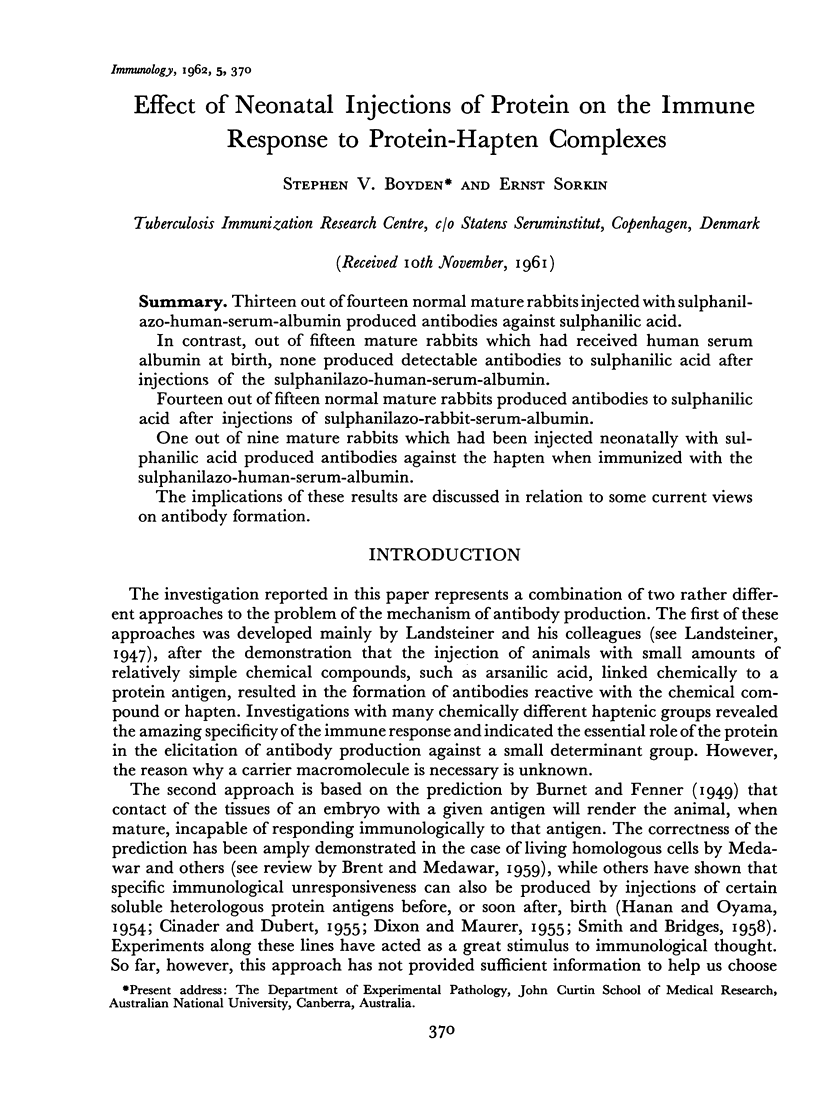
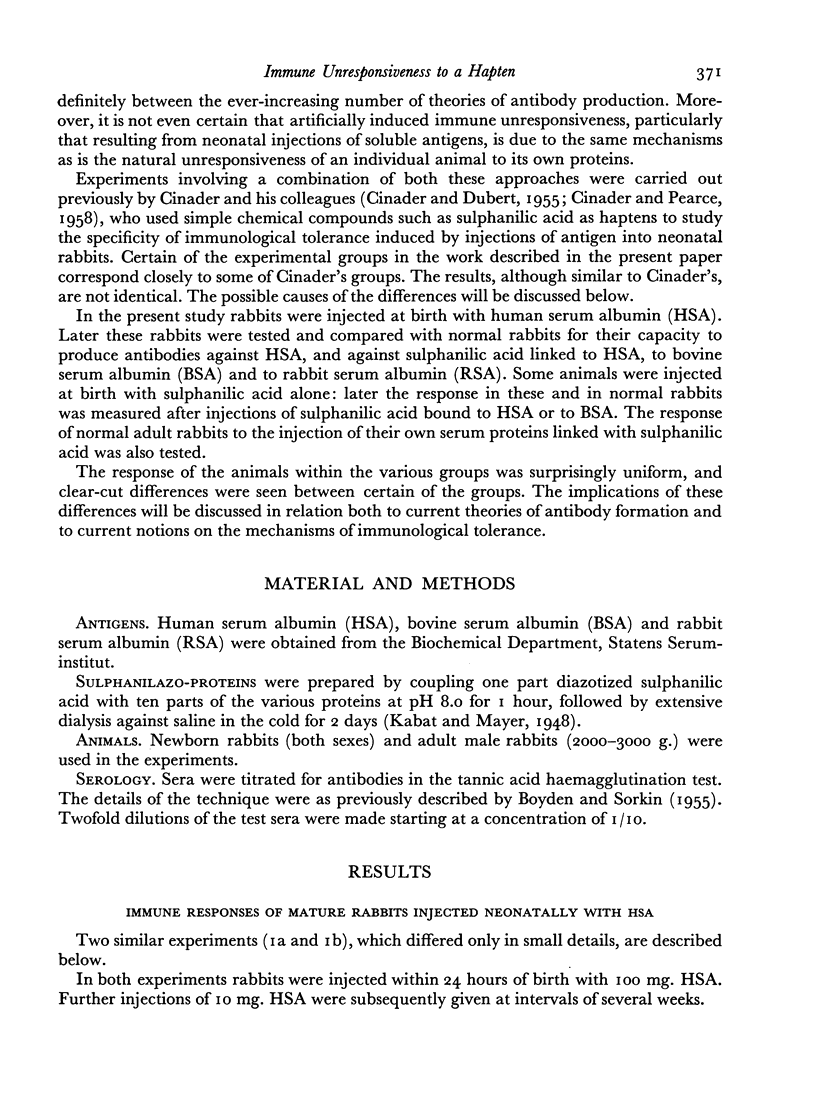
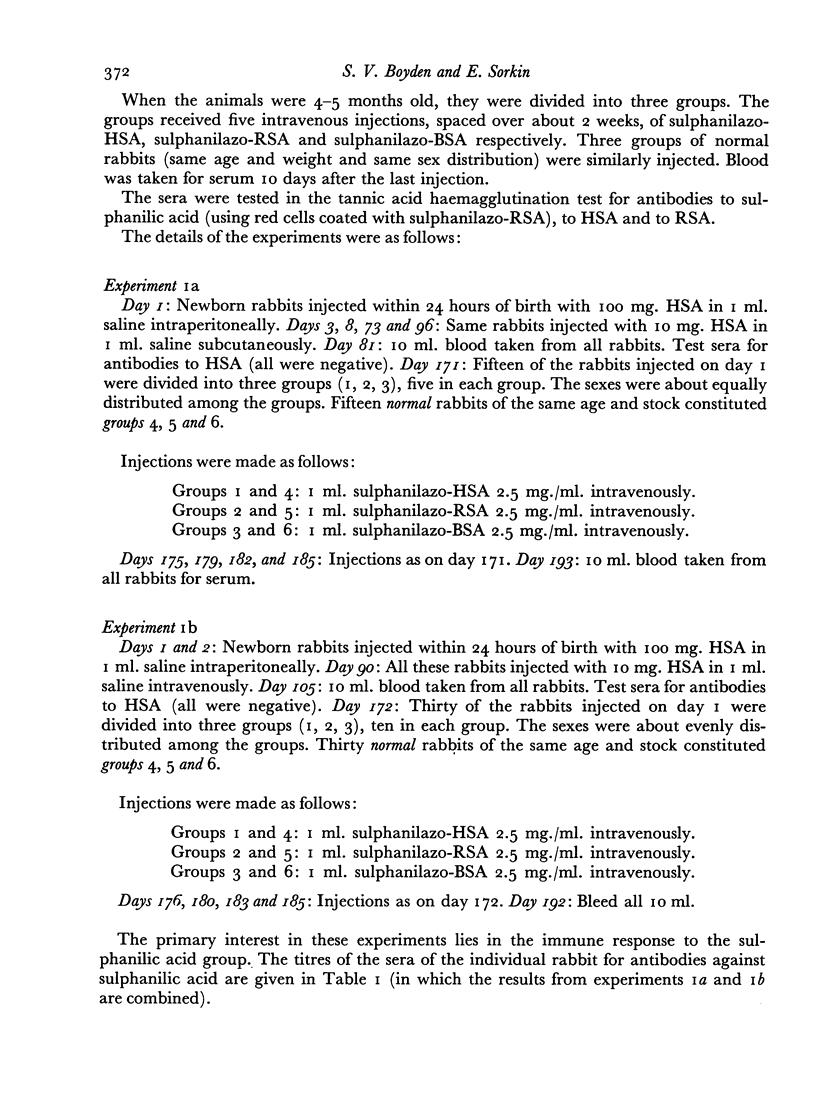
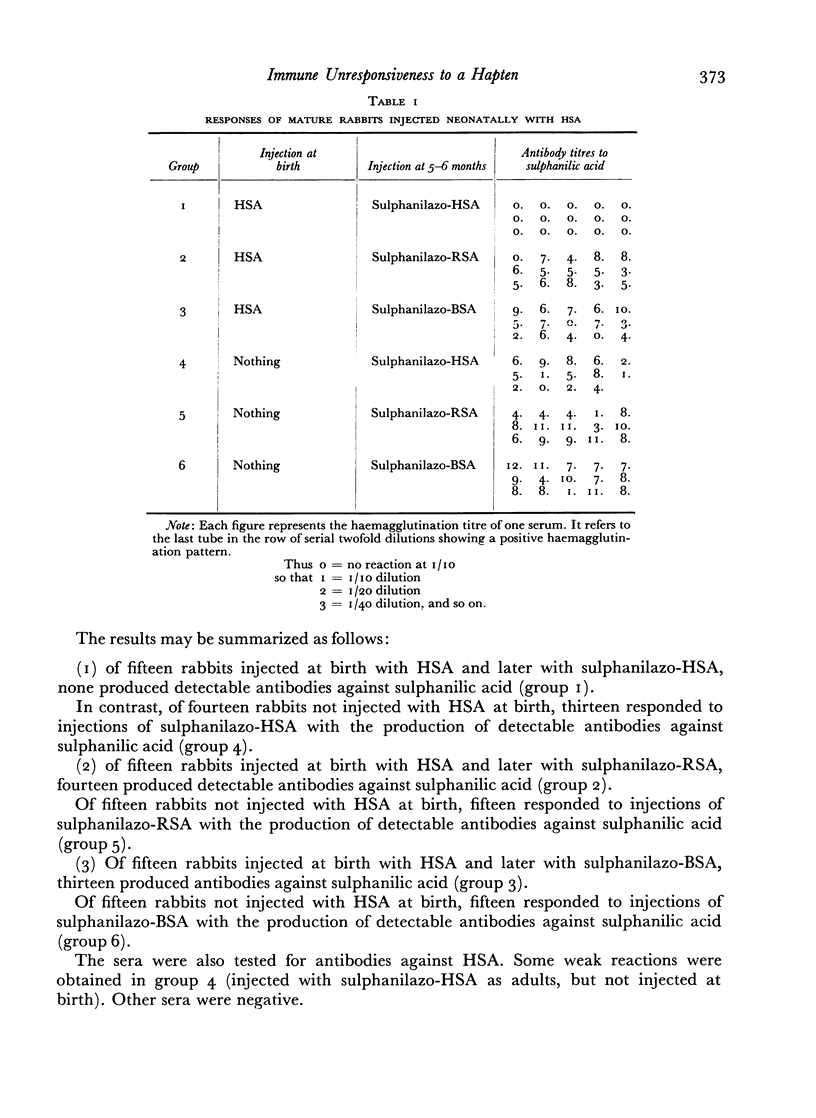
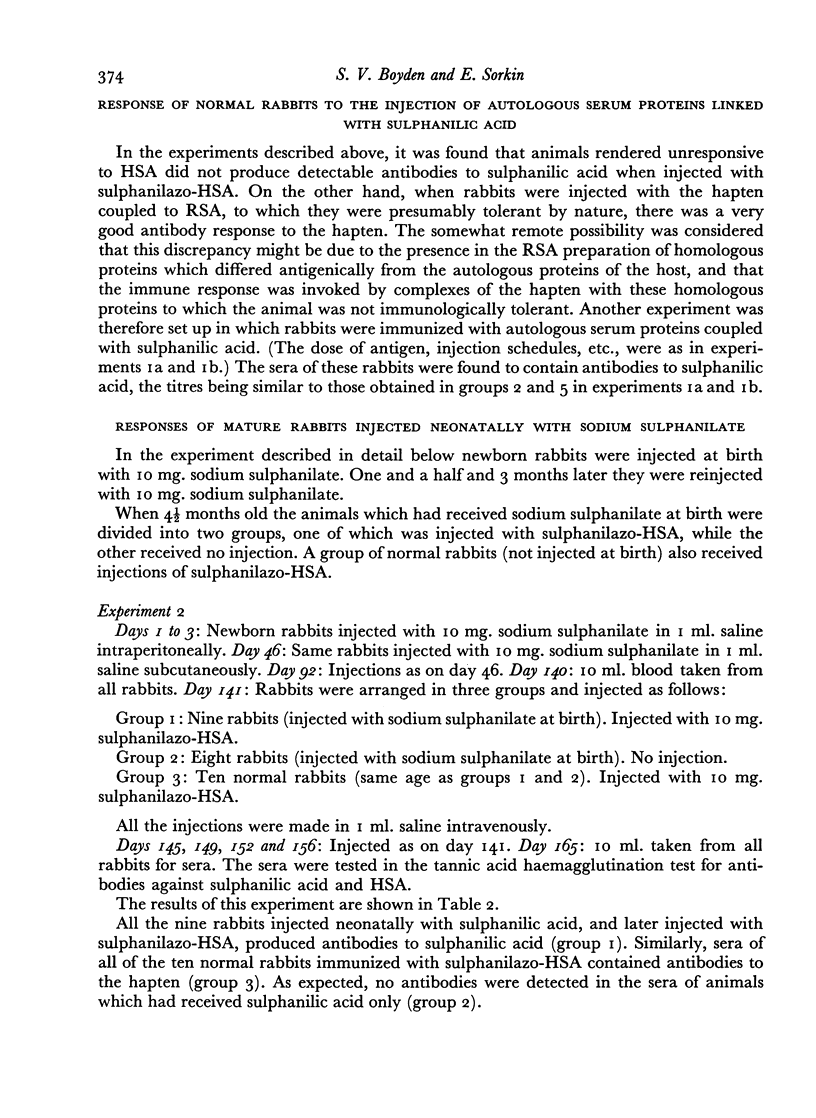
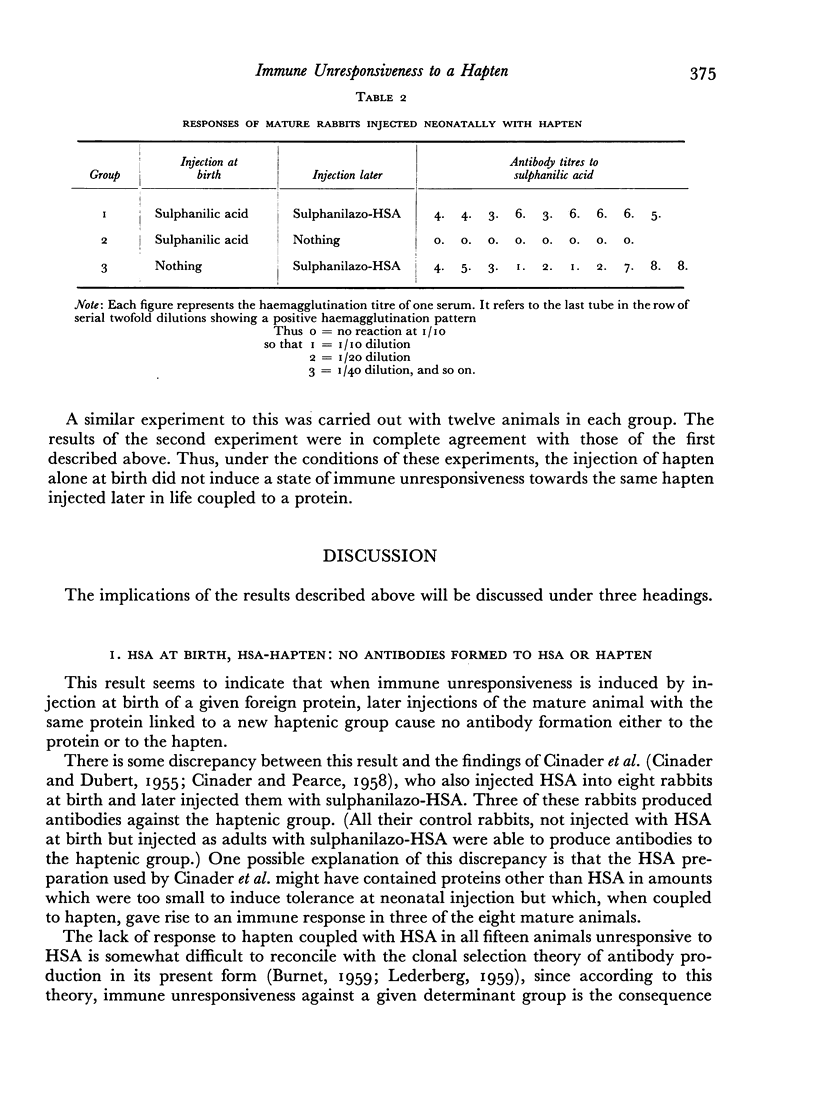
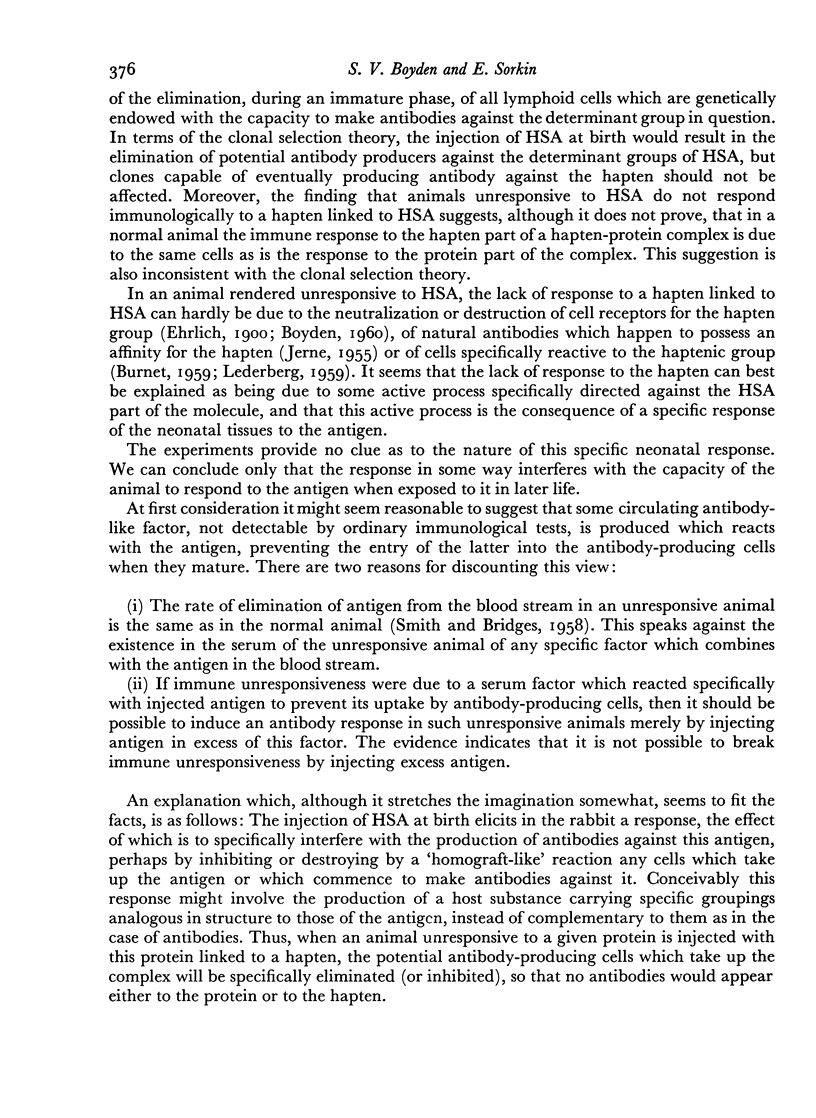
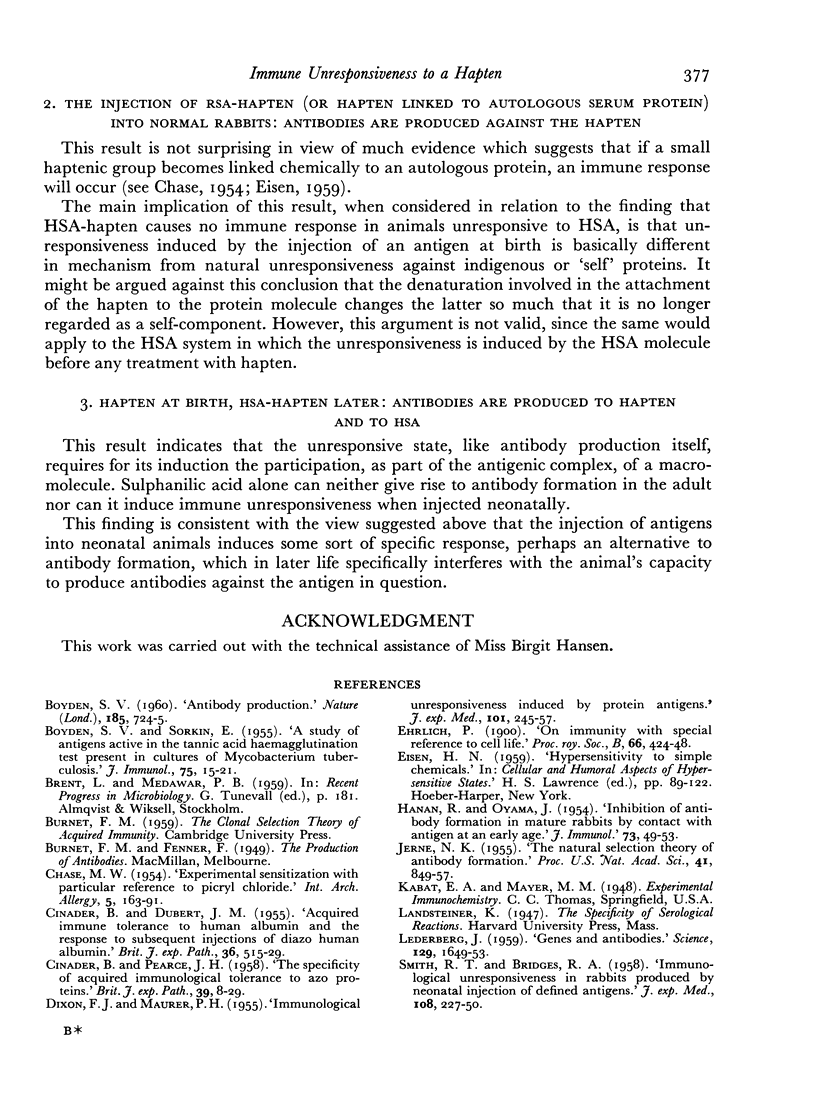
Selected References
These references are in PubMed. This may not be the complete list of references from this article.
- BOYDEN S. V. Antibody production. Nature. 1960 Mar 12;185:724–727. doi: 10.1038/185724a0. [DOI] [PubMed] [Google Scholar]
- CINADER B., PEARCE J. H. The specificity of acquired immunological tolerance to azo proteins. Br J Exp Pathol. 1958 Feb;39(1):8–29. [PMC free article] [PubMed] [Google Scholar]
- Jerne N. K. THE NATURAL-SELECTION THEORY OF ANTIBODY FORMATION. Proc Natl Acad Sci U S A. 1955 Nov 15;41(11):849–857. doi: 10.1073/pnas.41.11.849. [DOI] [PMC free article] [PubMed] [Google Scholar]


